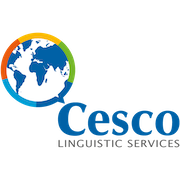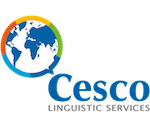- Home
- /
- Blog
- /
- Interpreting Services
- /
- How to Ensure Attorney-Client...
How to Ensure Attorney-Client Confidentiality with Non-English Speaking Clients

You most likely already know everything about attorney-client privilege. But what happens when multiple languages enter the mix?
Let’s untangle the challenges and solutions of confidentiality in a multilingual setting.

Maintaining Confidentiality with Interpreters Present
Imagine adding another person to your confidential discussions.
A bit unsettling, right?
But interpreters aren’t just “another person”.
- Role of an Interpreter: Think of them as a professional colleague. They’re there to convey, not comment or advise.
- Boundaries and Responsibilities: The interpreter’s realm? Language. Yours? Legal advice. Keeping these roles distinct ensures the bond remains unbroken.
- Legal Precedents: Good news! Courts often recognize interpreters as extensions of the attorney-client relationship, not a breach in the bond.
- LSPs as a Bridge: When you partner with a Language Service Provider (LSP) for your interpreting needs, they vet and pre-qualify the interpreters to ensure preparation to accurately relay legal jargon and to adhere to a professional code of ethics. LSPs make sure that client attorney confidentiality remains intact by qualifying their interpreters for legal interpreting services.
Related: Protecting Client Confidentiality in Legal Translations: What Paralegals
Selecting LSPs with a Strong Code of Ethics
This is where your peace of mind truly starts. Picking the right LSP can make all the difference.
- Professional Standards: The crème de la crème of Language Service Providers (LSPs) adhere to a stringent ethical codes. It’s not just about language accuracy, but confidentiality too. Additionally, one code does not fit all settings. An LSP that has different codes for the different settings for which they provide services is key. For legal settings, ensure that the LSP has a strong code of ethics for interpreters serving in legal settings in and out of the courtroom.
- Certification and Training: Interpreters from a reputable LSP should be, depending on the language, certified. At minimum, they should be trained. This all means they aren’t just fluent in a language; they’re versed in the dos and don’ts of legal proceedings and poses the required skills to provide accurate and meaningful interpretations.
- Vetting Process: Tip from us at Cesco: Always review an LSP’s track record, training, and testimonials. It’s a quick way to gauge their commitment to confidentiality.
Best Practices for Multilingual Attorney-Client Engagements:
Practical steps to keep those confidential engagements, well, confidential.
- Pre-Engagement Briefings: Always brief your LSP and interpreters about the sensitivity and importance of the discussions. Sharing information will not only help them prepare for your encounter, but will help them understand the protocols they must follow.
- Confidentiality Agreements: Have your LSP sign these. It’s not just good practice; it provides an added layer of security. Additionally, ensure that the LSP has signed confidentiality or non-disclosure agreements with each interpreter in their network.
Providing legals services to speakers of other languages might seem like uncharted territory, but with the right preparation and partner safeguarding confidentiality becomes second nature. Embrace the diverse world we live in, and let’s ensure every voice, no matter the language, is heard and provided a fair opportunity before the law.
In need of professional interpreters who understand the sanctity of attorney-client privilege? At Cesco Linguistic Services, we’ve got your back.
Click here and select the language you need for that confidential legal case!
 Cesco Linguistic Services was founded on August 4, 2004. Our passion is to facilitate Human-to-Human understanding in meaningful and rewarding ways through the power of language. We excel at providing expert & timely customized language solutions for organizations of all sizes. The name Cesco (pronounced “Chesco”) comes from the founder’s firstborn son Francesco, whose birth coincided with the year the company was founded.
Cesco Linguistic Services was founded on August 4, 2004. Our passion is to facilitate Human-to-Human understanding in meaningful and rewarding ways through the power of language. We excel at providing expert & timely customized language solutions for organizations of all sizes. The name Cesco (pronounced “Chesco”) comes from the founder’s firstborn son Francesco, whose birth coincided with the year the company was founded.





